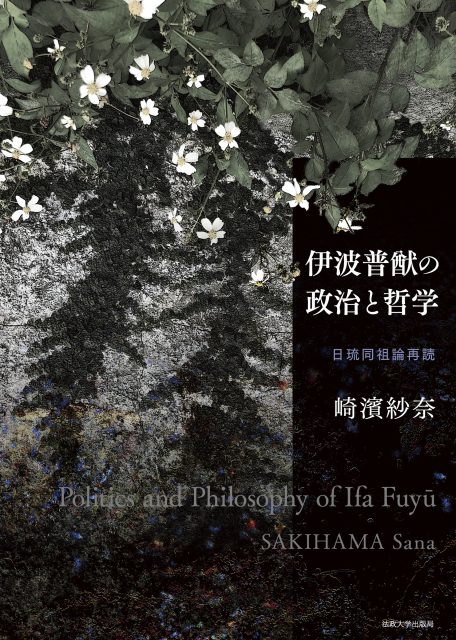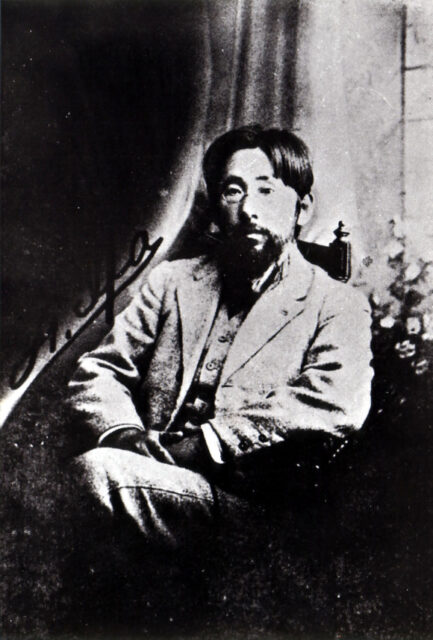On October 29, 2023, I participated in the panel “The New Developments in the Study of Ifa Fuyu: Reading Sana Sakihama’s Ifa Fuyu no Seiji to Tetsugaku (Politics and Philosophy of Ifa Fuyu),” in The Society for the History of Social Thought (SHST, in Nanzan University). This panel was organized by Prof. BAJI Tomohito, who is a director of the research project “A Global Intellectual History of the Pacific”, the Global Studies Initiative (GSI), the University of Tokyo, aiming to discuss my book, Ifa Fuyu no Seiji to Tetsugaku (Politics and Philosophy of Ifa Fuyu) (Tokyo: Hosei University Press, 2022) more widely in the context of postcolonial studies. We invited two scholars as reviewers: Prof. TOMIYAMA Ichiro (Doshisha University) and Prof. MITOMA Toshiyuki (Ritsumeikan University). Prof. Tomiyama is a distinguished scholar who has engaged in Okinawan studies and postcolonial studies. Prof. Mitoma specializes in the studies of Max Weber besides Okinawan studies.

SAKIHAMA Sana, Ifa Fuyu no Seiji to Tetsugaku (Politics and Philosophy of Ifa Fuyu, Tokyo: Hosei University Press, 2022. =崎濱紗奈『伊波普猷の政治と哲学:日琉同祖論再読』、法政大学出版局、2022年。
IFA Fuyu (1876-1947) is a familiar thinker to those involved in Okinawan studies. As he is called the “father of Okinawan studies,” he is famous as a person who established the foundation of Okinawan studies. However, for those who are not familiar with “Okinawa,” his name is not necessarily well known. In my book, I aimed to examine the significance of understanding Ifa’s thought in the broader context of colonialism and imperialism, rather than within the limited framework of Okinawan studies, focusing Ifa’s discussion on the relationship between the politics and capitalism. Both professors deeply understood the purpose of my project and sympathized with my interest, and made important comments.

IFA Fuyu (1876-1947), a representative thinker of modern Okinawa
Prof. Tomiiyama positively evaluated the issue of “politics” and “subject” being inseparable themes that I discussed in my book, and pointed out the necessity of re-examining the historicity of the economic crisis through 1910s to 1920s known as “Sotetsu Jigoku (蘇轍地獄)” as an occasion for such a theme to appear in the thought of Iha Fuyu. Prof. Mitoma commented on the topic of the reception of “science” in Ifa, with comparative reference to the thought of Max Weber as Ifa’s contemporary.
In addition to comments from the two reviewers, several questions were asked from the floor. Prof. Baji, who chaired the session, asked me what kind of readers I would like to deliver this book to. To this question, I responded that I wanted my book to be read by anyone who wants to change the way of the world through thought and philosophy, beyond the framework of “Okinawa.”
Thought and philosophy may never be a quick and effective means of changing realpolitik. However, when we reflect on the past, we know that every turning point in history has been accompanied by a major transformation of discourse. I would like to continue to think of ways to give a critical spirit to thought and philosophy, rather than regarding them as mere academic fields.
Acknowledgments:
I would like to take this opportunity to express my deepest gratitude to Prof. FURUTA Takuya (Nishogakusha University) and Prof. KAMIMURA Tsuyoshi (Kwansei Gakuin University) for their kind assistance from the planning stage of this session.
Reported by: Sana Sakihama (EAA Project Assistant Professor)








